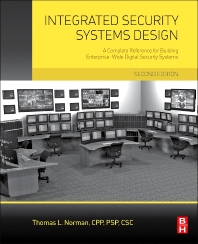Tech @ Work
NorCal Cannabis Co. Selects Ambient.ai Solution to Enhance Security System

As one of California’s largest premium indoor flower producers, NorCal Cannabis Co., needed advanced AI to enhance its current electronic security system. // IMAGE COURTESY OF NORCAL CANNABIS CO.
As part of a highly regulated industry, cannabis producers face a unique set of challenges, starting with securing the premises and the product. As one of California’s largest premium indoor flower producers, NorCal Cannabis Co., based in San Francisco, operates a “seed to sale” business, producing more than 12 tons of finished product annually, which gets shipped to a growing network of retail locations.
“The cannabis industry is complex, highly regulated and constantly changing,” said Ted Ritchie, director, technical operations at NorCal Cannabis. “We needed a solution that would deliver our needs for today, but also be scalable and adaptable to a rapidly expanding business in a dynamic environment.”
Beyond meeting a checklist of requirements across all stages of operations, from warehousing to retail, NorCal needed a security solution that would build on its existing security infrastructure and improve business efficiency by blending sophisticated electronic security with advanced AI intelligence.
A key requirement for any cannabis producer is strong access control, coupled with tools to assist in complying with state-specific regulations. “Our products are lightweight and high value,” Ritchie said. “When combined with active black markets and secondary markets, the nature of the product makes theft an ever-present risk.” And then there are the regulatory requirements, with California cannabis operations being highly regulated. All operators must maintain at least 90 days of data storage on all security cameras, and regulators can request access to footage at any time, Ritchie said. Additionally, local governments often have additional requirements on top of state regulations.
Security is involved in virtually every step of the process. NorCal weighs and places RFID tags on product any time it’s moved. The company deploys hundreds of cameras across its facilities, all with 1080p resolution — beyond the 740p required by California regulators. Because product is transported through various areas, NorCal needed a way to accurately track, detect and quickly investigate all matters relating to product management.
“As an expanding organization in a highly regulated industry with numerous facilities — retail storefronts, warehouses and cultivation facilities — our security team is tasked with detecting, managing and resolving a wide range of security risks,” Ritchie said. “We wanted to enhance these capabilities with AI-powered intelligence, and bring automation to our operations where possible.”
In search of a solution to meet all these needs, NorCal contacted Ambient.ai, based in Menlo Park, Calif., based on multiple referrals from satisfied customers. The NorCal Cannabis team was introduced to Ambient.ai at an industry event.
“In talking with Ambient.ai, we were interested in the capabilities of the technology to increase efficiency and capabilities of our security teams,” Ritchie said. “We evaluated numerous other vendors who we found did not quite live up to the promises of the capabilities of their systems, or their offering did not satisfy our requirements. Once we engaged with the Ambient.ai team, we were impressed with Ambient’s product and technical expertise as well as flexibility in adapting their solution for our needs, including ability to integrate with other solutions, such as Brivo’s.”
Ambient.ai offers an integrated solution that addresses both access control and security issues. The Ambient.ai/Brivo solution was a good match for NorCal’s need since access control is such a critical part of NorCal Cannabis’ security operations, ensuring compliance with relevant regulations, said Shikhar Shrestha, CEO and co-founder of Ambient.ai.As a primarily cash-based business, cannabis producers require surveillance over everything, from the front and back of retail locations to warehouses where product is stored, said Steve Van Till, founder and CEO, Brivo, Bethesda, Md. “Not only are there tremendous problems in the industry with the potential for
employee theft, but it’s also an obvious target for people to use violence to get the product or cash,” he said. “Everybody has those two problems to solve.”
While deployment, which began in April 2022, was completed in two or three months, it was not without challenges, Shrestha said. The primary issue was the sheer number of different security systems on premises, including hundreds of cameras. “Manual monitoring and investigations slowed their threat detection, response and investigations,” Shrestha said. “NorCal Cannabis needed to bring intelligent automation into their physical security operations to quicken workflows, free personnel from rote, manual tasks, and enhance their security. With a robust security infrastructure in place, the missing piece was AI-powered automation.”
Because of the sheer size and diversity of NorCal locations throughout the supply chain, the company was unable to detect early-warning threat indicators that occur without a hardware read, such as loitering or tailgating, which created false alarms and additional triage work for security teams, in addition to video feed monitoring, Shrestha said.
The Ambient.ai security platform helps NorCal manage the strict regulations for monitoring lightweight, high-value products across multiple supply chain locations with automated threat detection and forensics. Layered over NorCal’s existing camera infrastructure, Ambient.ai automatically monitors surveillance feeds for more than 150 potentially threatening behaviors, from tailgating to a person leaving a secure area with a box.
“Leveraging computer vision intelligence, the Ambient.ai platform breaks down every scene flowing through surveillance video feeds, looking for visual threat signatures of common behaviors like removing product from a location or breaching a secure perimeter,” Shrestha said. “Due to the scalability of computers to pattern match with AI, Ambient.ai can detect threats that are difficult for humans to catch in live video streams and triage that threat based on situational context. For example, a door propped open at a warehouse during the day is much less concerning than if a door is propped open in the middle of the night.”
When a threat is detected, Ambient.ai delivers an alert with an associated video clip to security personnel and automates dispatch. “Additionally, with Ambient.ai Signals Intelligence and Brivo Access, we’re able to automate the resolution of false alarms, using Ambient.ai’s computer vision intelligence to validate the legitimacy of alarms without the need for manual dispatch,” Shrestha added.
The Ambient.ai platform also features a natural language search tool that enables users to search terms such as “tailgating,” so an operator can quickly access all related alerts without needing to know the camera, video stream or exact timecode — an important feature for cannabis businesses that can be required by regulators to share footage on a short deadline.
After NorCal deployed the Ambient platform, the company quickly realized benefits including the ability to catch and respond to twice as many legitimate threats as before; accelerate investigation times by 10 times; and enable a single security operator to effectively cover over 300 cameras, almost 10 times more than previously possible, Ritchie said.
“This case study illustrates that the combination of video access control and AI is a powerful combination,” Van Till said. “We expect to see much more of that going forward, not only for cannabis, but any business that is using our products or our partners’ products.”
Looking for a reprint of this article?
From high-res PDFs to custom plaques, order your copy today!








